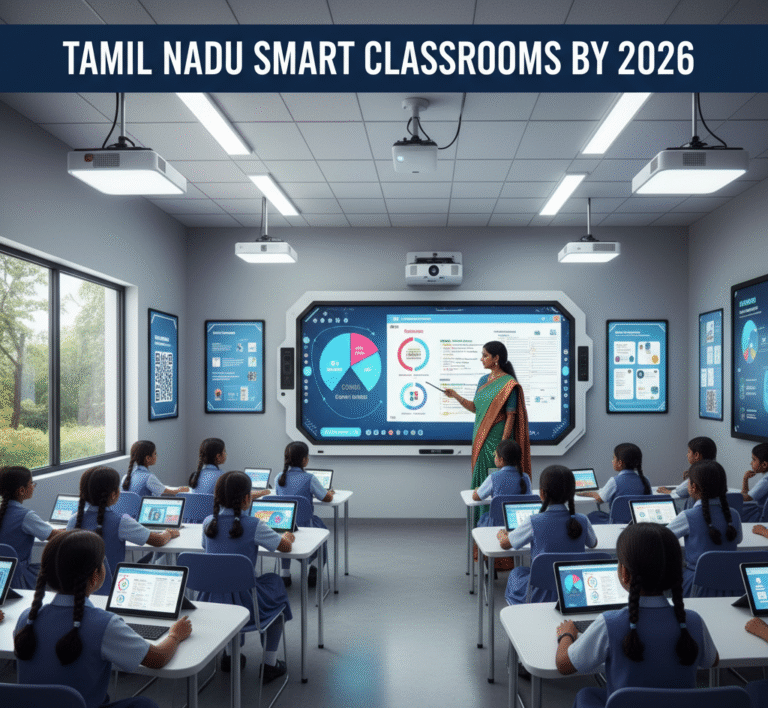The Tamil Nadu Department of School Education is taking a major step towards digitizing education in the state. By 2026-27, the government plans to set up 6,672 smart classrooms and 2,236 hi-tech labs in over 5,000 schools across Tamil Nadu. This initiative is part of the state’s ₹286 crore project aimed at integrating digital learning tools, interactive teaching methods, and online assessments in schools.
Key Details of the Smart Classroom and Hi-Tech Lab Initiative
- 6,672 smart classrooms will be established across 5,322 government schools.
2,236 hi-tech labs will be added to 2,232 schools. - Total Project Cost: ₹286 crore, with ₹127.57 crore allocated for smart classrooms and ₹159.06 crore for hi-tech labs.
- Contractors will handle the installation, testing, and maintenance of these classrooms and labs for five years.
This initiative aims to create a seamless integration of digital tools in classrooms and empower teachers to use technology effectively for teaching and assessments.
Features of the Smart Classrooms and Hi-Tech Labs
The smart classrooms will be equipped with:
- Interactive display panels and desktops with Windows 11.
- External speakers, microphones, UPS systems, and web/IP cameras to ensure uninterrupted learning.
- These classrooms will offer a dynamic learning environment where students can engage with lessons more interactively and digitally.
The hi-tech labs will be integrated with the existing Command and Control Centre at the State Project Directorate. Qualified administrators and instructors will be deployed in each lab for efficient operation and maintenance.
Benefits of Digital Learning for Tamil Nadu Students
This project will help students practice for future-ready assessments, which will be released online in the form of small question sets. These assessments will enable teachers to assess students more effectively and reduce the workload of printing paper assessments. The move to digital learning tools will not only make education more engaging but also prepare students for the future of education and careers.
Conclusion
With the introduction of 6,672 smart classrooms and hi-tech labs, Tamil Nadu is making significant strides towards creating a technology-driven learning environment. By enhancing student engagement and providing access to modern education tools, the initiative will ensure that students across the state are well-prepared for the future.

